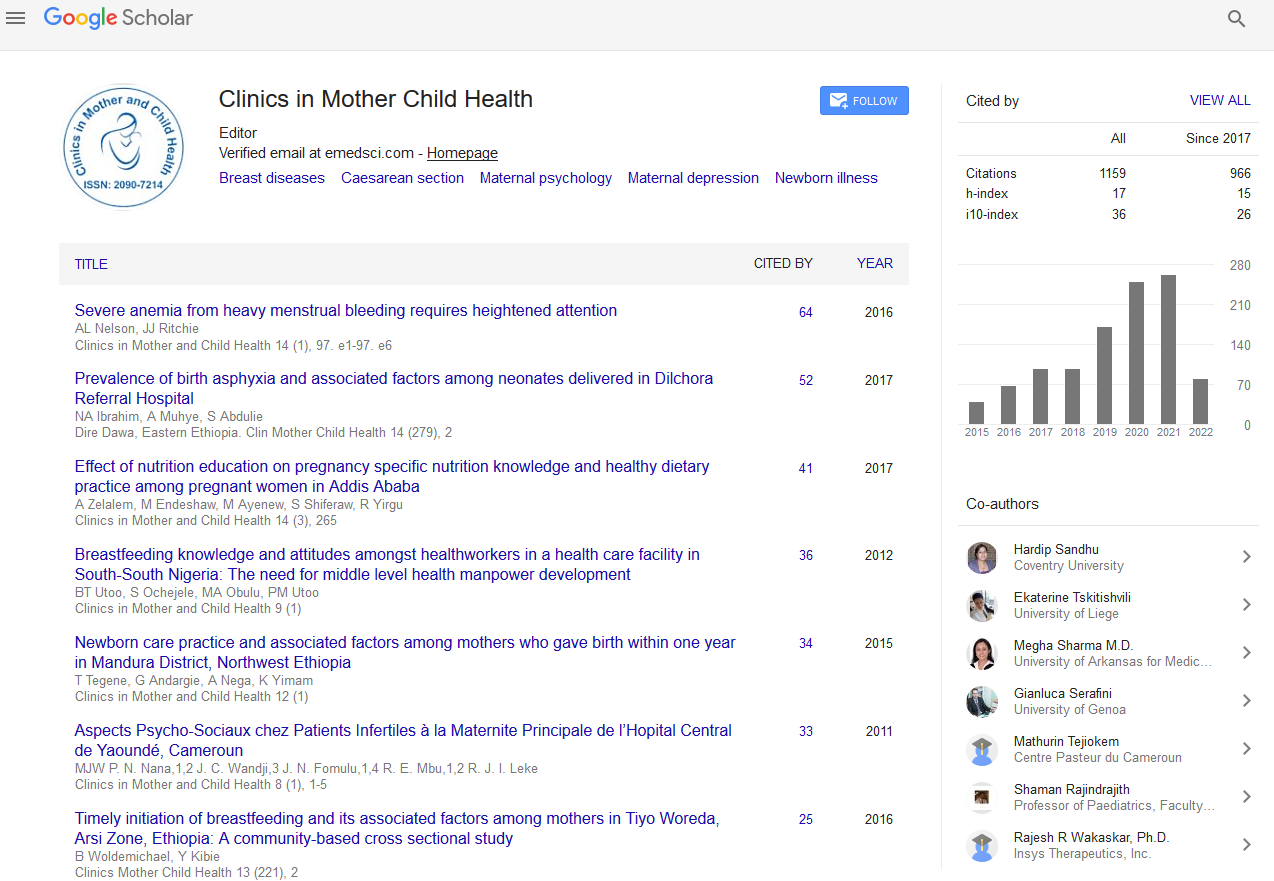Indexed In
- Genamics JournalSeek
- RefSeek
- Hamdard University
- EBSCO A-Z
- Publons
- Geneva Foundation for Medical Education and Research
- Euro Pub
- Google Scholar
Useful Links
Share This Page
Journal Flyer

Open Access Journals
- Agri and Aquaculture
- Biochemistry
- Bioinformatics & Systems Biology
- Business & Management
- Chemistry
- Clinical Sciences
- Engineering
- Food & Nutrition
- General Science
- Genetics & Molecular Biology
- Immunology & Microbiology
- Medical Sciences
- Neuroscience & Psychology
- Nursing & Health Care
- Pharmaceutical Sciences
Abstract
Heparin Use in Pregnant Women Diagnosed With Thrombophilia: Obstetric Outcomes
Júlio Rezende de Andrade, Marina Valadão Camargos, Mateus Figueiredo de Rezende Reis, Ricardo Augusto Barcelos Maciel, Tamara Teixeira Mello, Sophia Batalha, Hakayna Calegaro Salgado, João Matheus de Castro Rangel, Verônica Marques Matos, Alexander Cangussu Silva, Clarissa Rocha Panconi, Larissa Milani Coutinho, Mariana Pinto Sirimarco and Juliana Barroso Zimmermmann*
Introduction: Thrombophilias are associated with venous thromboembolism. According to reports, uteroplacental thrombosis can lead to preeclampsia, intrauterine growth restriction (IUGR), placental abruption (PA) and even to fetal death. The Brazilian Ministry of Health recommends the application of heparin treatment-associated, or not, with ASA to pregnant women diagnosed with thrombophilia, based on its type. However, many studies have not been able to confirm the beneficial effects of heparin use on maternal and fetal health. Methods: The current research is a case-control study comprising pregnant women treated at the Obstetrics Service of Federal University of Juiz de Fora and at the Medical School of Barbacena, who used heparin in the current pregnancy due to previously diagnosed thrombophilia. Current pregnancy associated with heparin use was named ‘case’, whereas previous pregnancy without heparin use was named ‘control’. Thus, 47 cases (current pregnancy) and 32 controls were selected (1,4 cases: 1,0 control). Results: Association between heparin and miscarriage, intrauterine fetal death and preeclampsia were analyzed. Results showed that heparin acted as protective factor against miscarriage (OR=0.04; CI=0.01-0.14; p<0.0001), intrauterine fetal death (OR=0.01; CI=0.01-0.11; but heparin use did not reduce the frequency of preeclampsia cases (OR=0.35; CI=0.07-1.6; p=0.17). Conclusion: Based on the current results, the early heparin application to pregnant women with thrombophilia was able to reduce the number of miscarriage, intrauterine death, but did not reduce the frequency of preeclampsia.
Published Date: 2019-09-10; Received Date: 2019-08-28


